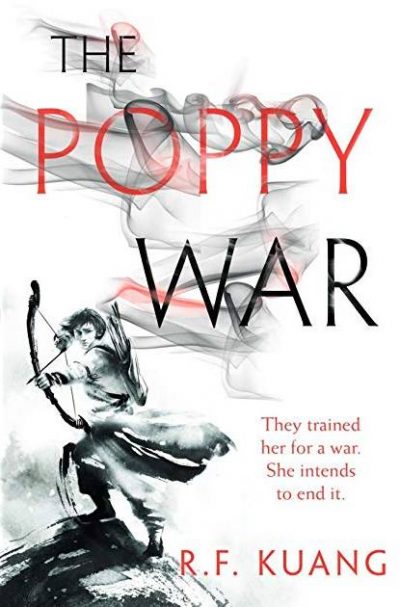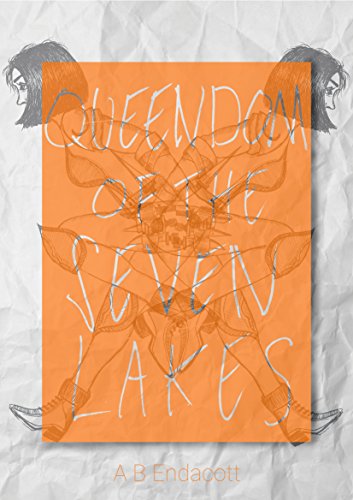Literary rating: ★★★
Kick-butt quotient: ☆☆
This series opener got a favorable review from one of the ladies in a Goodreads group I belong to. Since I’m interested in the vampire mythos, and especially intrigued by fiction that approaches it from a Christian standpoint, her review got my attention, though I hadn’t previously heard of either the author or the series. So, when I discovered that I could download the e-book for free, I opted to give it a try.
This is basically urban fantasy, and is clearly influenced both by the Twilight Saga and the Harry Potter series (though Meyer and Rowling are each significantly more accomplished writers than Cerepaka is). What makes it somewhat distinctive in that 24-year-old Tara is a Baptist pastor’s daughter and a Christian believer herself (she made a Christian commitment at the age of 13), who takes her faith seriously, has taught Sunday school, and is singing for her dad’s congregation in a church service when the book opens. But this Sunday proves to be atypical, when an actual vampire crashes through a sanctuary window (on the second frame of the e-book) and bites her in the neck. As in the Twilight books, those who survive a vampire bite normally become vampires themselves. But as the previously clueless Tara learns, she and her dad are Sorcerers, genetically gifted with magic powers most humans (the Powerless –think, “Muggles”) don’t have.
 Vampires generally don’t bite their Sorcerer enemies; they just try to kill them. But a rare bitten Sorcerer becomes a half-vampire, with some vampire traits (including a blood thirst –though vampires don’t have to indulge that with human blood, despite the strong temptation) combined with ability to use magic, though just as in the Potter books, that takes training. Unfortunately for Tara, that not only poses theological conundrums for a good Baptist young lady; half-vampires are considered by both the Vampire Council and the Sorcerer’s Parliament as unnatural abominations that need to be killed on sight. And then there’s the added wrinkle that, as Council agent Lucius soon reveals, Tara’s assailant was working for a rogue Vampire Lord who has his own agenda –and it’s an agenda the rest of the world won’t like.
Vampires generally don’t bite their Sorcerer enemies; they just try to kill them. But a rare bitten Sorcerer becomes a half-vampire, with some vampire traits (including a blood thirst –though vampires don’t have to indulge that with human blood, despite the strong temptation) combined with ability to use magic, though just as in the Potter books, that takes training. Unfortunately for Tara, that not only poses theological conundrums for a good Baptist young lady; half-vampires are considered by both the Vampire Council and the Sorcerer’s Parliament as unnatural abominations that need to be killed on sight. And then there’s the added wrinkle that, as Council agent Lucius soon reveals, Tara’s assailant was working for a rogue Vampire Lord who has his own agenda –and it’s an agenda the rest of the world won’t like.
If that sounds like an interesting premise with good possibilities, it is (provided you like that sort of thing –which I do!). The execution, though, isn’t nearly good enough to fully realize the potential of the idea. Throughout my reading of the book, I found myself thinking of ways in which the literary craftsmanship could be improved; obviously, that’s never a good sign! Cerepaka’s prose is minimalist (and often awkward), telling the story straightforwardly enough, but with little description or texture to enflesh the characters and situations. Since Tara is the first-person narrator, we get inside her head; but even so, neither she or the other major characters are very well-developed; we’re never even told, for instance, what she does for a living, though she has a job.
As that would imply, the novel is much more plot-driven than character-driven, and the characters tend to be mostly two-dimensional. No sense of place is evoked; our setting is Texas, where the author lives, but we only learn that in Chapter 20 of a 29-chapter book. (Until then, the references to Greensboro and South Side had me picturing a setting in North Carolina and south-central Virginia!) In a couple of places, facts are stated in the narration and then contradicted a couple of pages later. Although romance actually isn’t a significant element here – it probably is in subsequent books – what there is of it is an unconvincing, one-sided insta-love.
So, why three stars? There are a few pluses here. This is a very fast-paced book, beginning with a bang and moving along quickly through a short time-frame: just about two days for the main story), and though the prose is undistinguished, it flows relatively easily, even despite Tara’s tendency to repeat things in places or over-explain. That makes it a quick read, and I was engaged enough with the story throughout to be anxious to keep clicking to the next frame. Once I started reading it, I finished it in four days, and for me that’s pretty good time for reading an e-book! Cerepaka does display some originality in the treatment of his vampires, and in creating story elements like the Shadow Way and the Strangers, and of course the Vampire Sword itself. Though historically it couldn’t have been forged “ten thousand years ago” –metallurgy didn’t exist then, unless we imagine Robert E. Howard’s lost Hyborean Age! I appreciated the fact that Lucius is a “Pure”, a vampire who eschews human blood, and is disposed to help rather than hurt humans; and Tara’s sincere spiritual struggle with the question of whether, as a half-vampire, she still has a soul and a relationship with God, or is beyond His grace, gave the tale a certain degree of depth.
A word about Tara’s character is worthwhile, since it’s the most developed one here, and obviously the most central. Despite the deficiencies in the portrayal, she does come across as basically likable. Yes, she’s overly concerned with the fact that Lucius is handsome, sometimes to the point of making my eyes roll. But she’s a single woman in her 20s, not a plaster statue on a pedestal. The same can be said of the fact that her Christian faith doesn’t mean she never says a swear word, nor that she’s a paragon of devotional practice. She is who she is; but the person she is has a kind heart, a caring disposition towards others, and a core of guts and resolve when the chips are down. While she’s definitely in a distress situation here, she’s far from helpless; and though she’s not into violence, she’s game to do what has to be done –a fact we learn when she takes out the vampire who bit her with a head shot from a pistol her dad dropped (the bullets were silver). Another thing that helps credibility here (and also adds some depth) is that her greatest challenges in combat situations don’t hinge on her physical fighting ability (which is largely untrained at this point!) but rather on the strength and purity of her moral will.
All in all, I liked this well enough as an entertaining read. I wouldn’t spend much money to buy it, or the two later books – but I might pick up a used copy of the sequel if I found one at a flea market or a yard sale. :-)
Author: T. L. Cerepaka
Publisher: Self-published; available through Amazon, both for Kindle and as a printed book.
Book 1 of 3 in the Vampire Sorceress series.
A version of this review previously appeared on Goodreads.





 Grace deHaviland is a former cop, fired from the force in Columbus, Ohio under circumstances which remain murky. To continue in the justice field, she turns to bail enforcement, bringing in perps who have gone on the lam in exchange for a percentage of their bond. They don’t necessarily want to come in, as we find out right at the start; her first target causes Grace almost to become a victim herself, save for the grace of her stun-gun. Following this, she gets to take on what should, in theory, be a nice, simple case: locating white-collar criminal Barry Keegan. He was the accountant for a pharmaceutical firm engaged in shady financial practices, and has skipped bail shortly before the trial involving him and the company’s head honchos.
Grace deHaviland is a former cop, fired from the force in Columbus, Ohio under circumstances which remain murky. To continue in the justice field, she turns to bail enforcement, bringing in perps who have gone on the lam in exchange for a percentage of their bond. They don’t necessarily want to come in, as we find out right at the start; her first target causes Grace almost to become a victim herself, save for the grace of her stun-gun. Following this, she gets to take on what should, in theory, be a nice, simple case: locating white-collar criminal Barry Keegan. He was the accountant for a pharmaceutical firm engaged in shady financial practices, and has skipped bail shortly before the trial involving him and the company’s head honchos. Revenge, as the saying goes, is a dish best served cold. Or, from another saying, hell hath no fury like a woman scorned. Illustrating both are the story told here. Jasmine Albertson had already gone through the lows and highs of life, before meeting and getting married to Stu. But when Stu’s business partner John Mickelson makes him take the fall for John’s embezzlement, leading to Stu’s suicide, Jasmine vanishes off the grid in Los Angeles. She moves to New York and sets her sights on a long-term plan to make John pay. And not financially: as she tells her gay best friend Tory, “I want him to know he fucked with the wrong people when he fucked over Stu and then me. I want him to suffer. And then I want to send him to hell.”
Revenge, as the saying goes, is a dish best served cold. Or, from another saying, hell hath no fury like a woman scorned. Illustrating both are the story told here. Jasmine Albertson had already gone through the lows and highs of life, before meeting and getting married to Stu. But when Stu’s business partner John Mickelson makes him take the fall for John’s embezzlement, leading to Stu’s suicide, Jasmine vanishes off the grid in Los Angeles. She moves to New York and sets her sights on a long-term plan to make John pay. And not financially: as she tells her gay best friend Tory, “I want him to know he fucked with the wrong people when he fucked over Stu and then me. I want him to suffer. And then I want to send him to hell.” It’s nice to be reminded of why I’m generally averse to romance in my reading – particularly poorly written and unconvincing romance, like we get here. An interesting scenario with potential gets bogged down in gooey mush during the second half: let’s just say, there are phrases such as “my tummy goes all tingly again.” Yes: again… If I wasn’t already committed by that stage, being more than half-way through a 500+ page book, that sentence might well have led to this ending up as a Did Not Finish. Instead, I figured I’d at least get a review out of it. You’re welcome.
It’s nice to be reminded of why I’m generally averse to romance in my reading – particularly poorly written and unconvincing romance, like we get here. An interesting scenario with potential gets bogged down in gooey mush during the second half: let’s just say, there are phrases such as “my tummy goes all tingly again.” Yes: again… If I wasn’t already committed by that stage, being more than half-way through a 500+ page book, that sentence might well have led to this ending up as a Did Not Finish. Instead, I figured I’d at least get a review out of it. You’re welcome.
 There can’t be many fantasy novels based on the events of World War II. But here we are, and Kuang has done an amazing job of taking historical events and weaving them into a saga of gods, magical powers and monsters, that works very well, even if you have no clue about the background.
There can’t be many fantasy novels based on the events of World War II. But here we are, and Kuang has done an amazing job of taking historical events and weaving them into a saga of gods, magical powers and monsters, that works very well, even if you have no clue about the background. In the late 22nd-century, Earth is pretty much screwed. The impact of a giant meteor killed a huge number of people, wiped out the everyday infrastructure, and sent the world into perpetual twilight. Thirty years ago, the wealthy upped and left, never to be seen again, abandoning the rest of the survivors to scramble in the ruins of civilization, simply trying to survive. Holly Danger is one of them, a salvager who lives by her wits in the labyrinth of a coastal city’s destruction. Which means dodging the seekers, addicts of the hyper-destructive drug, Plush, as well as the outskirts, those who come in to the city and raid it for supplies.
In the late 22nd-century, Earth is pretty much screwed. The impact of a giant meteor killed a huge number of people, wiped out the everyday infrastructure, and sent the world into perpetual twilight. Thirty years ago, the wealthy upped and left, never to be seen again, abandoning the rest of the survivors to scramble in the ruins of civilization, simply trying to survive. Holly Danger is one of them, a salvager who lives by her wits in the labyrinth of a coastal city’s destruction. Which means dodging the seekers, addicts of the hyper-destructive drug, Plush, as well as the outskirts, those who come in to the city and raid it for supplies. There is an interesting set-up here: unfortunately, it’s one which truly doesn’t get developed far enough. Elen-Ai is a 21-year-old woman, who has been brought up since birth to be an assassin for hire, part of “The Family.” Her latest commission is a little different: it’s not to kill, but to protect. For she is hired to make sure that Gidyon, the teenage son of Latana, Queen of the Second Country, stays alive. This is a matriarchal society, where power passes down the female side. But Latana has only her son, and is set to upset the traditional apple-cart by proclaiming Gidyon as her heir apparent. This decision will potentially be rejected by some among the seven clans who comprise the queendom, and may make him a target for those who’d rather see him out of the way. Hence, Elen-Ai’s presence, to make sure that doesn’t happen, as he begins a national tour around their estates, seeking support for his position.
There is an interesting set-up here: unfortunately, it’s one which truly doesn’t get developed far enough. Elen-Ai is a 21-year-old woman, who has been brought up since birth to be an assassin for hire, part of “The Family.” Her latest commission is a little different: it’s not to kill, but to protect. For she is hired to make sure that Gidyon, the teenage son of Latana, Queen of the Second Country, stays alive. This is a matriarchal society, where power passes down the female side. But Latana has only her son, and is set to upset the traditional apple-cart by proclaiming Gidyon as her heir apparent. This decision will potentially be rejected by some among the seven clans who comprise the queendom, and may make him a target for those who’d rather see him out of the way. Hence, Elen-Ai’s presence, to make sure that doesn’t happen, as he begins a national tour around their estates, seeking support for his position. This may be a first, in that the heroine here is non-human – contrary to what you (and, indeed, I!) might expect from the cover. I think I may have covered various crypto-humans before, such as vampires or elves. But this is likely the first entirely alien species. I began to suspect on page 1, when I read that Sah Lee “sank her pin-sharp teeth through the thick fur of the calf’s throat, and tasted the sweet metallic tang of its young blood.” This is clearly not your average twelve-year-old. And so it proves. The story really kicks under way two years later, when Sah Lee leaves her rural village on the planet of Aarn to attend school in the city of Aa Ellet.
This may be a first, in that the heroine here is non-human – contrary to what you (and, indeed, I!) might expect from the cover. I think I may have covered various crypto-humans before, such as vampires or elves. But this is likely the first entirely alien species. I began to suspect on page 1, when I read that Sah Lee “sank her pin-sharp teeth through the thick fur of the calf’s throat, and tasted the sweet metallic tang of its young blood.” This is clearly not your average twelve-year-old. And so it proves. The story really kicks under way two years later, when Sah Lee leaves her rural village on the planet of Aarn to attend school in the city of Aa Ellet. The first volume in the Imp series,
The first volume in the Imp series,  Barb and I discovered evangelical Christian author Mary Connealy through her Sophie’s Daughters trilogy, partially set in Montana in the years from 1878 to 1884. Several characters who figure in her earlier Montana Marriages trilogy, of which this novel is the third, also play important roles in the later one. So we were interested in their back stories; and when I found this book in a thrift store, it was a natural purchase! (We’ve also just started reading the second installment; long story!) This means we’re reading the trilogy in reverse order; so we started with much more knowledge of the characters’ future than the original readers would have (the read was more like a visit with old friends). However, I’ll avoid spoilers in this review. (Obviously, though, it might contain “spoilers” for the earlier Montana Marriages novels.)
Barb and I discovered evangelical Christian author Mary Connealy through her Sophie’s Daughters trilogy, partially set in Montana in the years from 1878 to 1884. Several characters who figure in her earlier Montana Marriages trilogy, of which this novel is the third, also play important roles in the later one. So we were interested in their back stories; and when I found this book in a thrift store, it was a natural purchase! (We’ve also just started reading the second installment; long story!) This means we’re reading the trilogy in reverse order; so we started with much more knowledge of the characters’ future than the original readers would have (the read was more like a visit with old friends). However, I’ll avoid spoilers in this review. (Obviously, though, it might contain “spoilers” for the earlier Montana Marriages novels.)